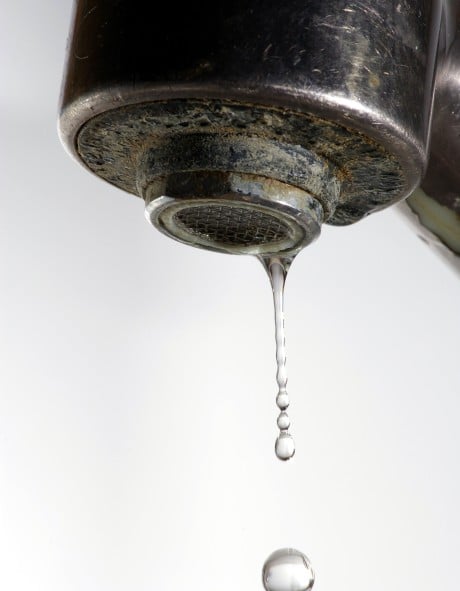
Many homes in the Frederick and Hagerstown areas utilize wells as their source of water. Wells are nice because they can be found in most areas; meaning that homes can be built anywhere there is a well. Well water and city water does differ, however, and each has its advantages and disadvantages. City water is treated to government standards and is monitored to ensure public health is maintained. The homeowner, however, must treat well water. In addition, the contents of a well are unique to those using it, meaning that if your neighbor uses a separate well, there may be an issue with one well without the other even knowing.
One of the largest differences between well water and city water is the “hardness” of the water. Hard water, usually found in wells, can cause problems for both homeowners and home plumbing systems. Get to know your water’s hardness and how to deal with it below.
When water falls in the form of rain, it is considered “soft.” As that water reaches the ground, however, and collects minerals and salts, it becomes “hard.” Hard water, then, is much more complex then soft water. There can even by different makeups of hard water, as some wells may have hard water because of Iron, calcium, or another mineral. Each mineral has a different effect on home usage.
One of the easiest signs your water is hard is the feeling left behind after a shower. In hard water, hair will stick together and generally feel less clean after washing. Additionally, both soap and shampoo will not work as well in hard water. Soap can leave a film when mixed with hard water that both makes it less effective at cleaning and leaves your skin feeling dry after you dry off.
Washing dishes has a similar effect to showering. Like the soap in your shower, dish soap will need to work extra hard to properly clean dishes when hard water is used. Because of the extra minerals in the water, hard water can also lead to clogging and wearing plumbing in the kitchen. Not only could your plumbing become stopped, but your bath fixtures also will develop scale on them if the hard water is allowed to sit on the metal. One of the most obvious signs of hard water in your home can be seen through your laundry habits. If your clothes lose life quickly and/or your whites yellow when washed in cold water, you likely have large amounts of iron in your water.
Finally, another sign that you may have hard water will come from your energy bill and plumbing behavior. If your hot water doesn’t last long, and/or your water heater is working extra hard (costing you energy dollars) then you likely have scale buildup from hard water clogging your hot water heater. But how do you treat your home to remedy these symptoms?
There are a couple of ways to fix the damage hard water can have on your plumbing system. First, it is best to repair any pipes that may be stopped or have an excess amount of scale buildup. Next, drain your hot water heater and try to remove as much buildup as you can. With this good start, you can then install a water softener. A water softener filters the minerals from your water and delivers pure, soft water to your faucets.
If you need help in diagnosing the issues with your plumbing system, or you wish to install a water softener in your home, contact Warner Service today. We will be happy to address any issues or questions you may have and get you on the right track to a better plumbing system today!

